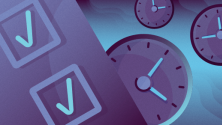Whether the big media producers like it or not, digital technologies have made it easier than ever for popular culture fans to create remixes or derivative works from their favorite movies, TV shows, books, and other media. And the participatory nature of the Internet has arguably helped broaden the popular definition of a "fan community" from something exclusive to comic and sci-fi fans to being inclusive of many genres and people. This includes giving wider exposure to a vast and yet often overlooked demographic in pop fandom—women—and their influence on mainstream media stories.
To appreciate the importance of women in fandom may first require recognition of the importance of fan communities at large. Some are likely to view fan fiction, fan art, and video mashups as wastes of time and creativity. Why not just create something original? Rather than passively consuming the stories big media organizations put in front of them, fan communities participate in the texts, exploring and sharing new meanings that the original producers may not have intended or even imagined. The digitization of media has made this participation even more fluid and opened new outlets for meaning-making, such as creating fake Twitter accounts for pop characters.
Free culture advocate Lawrence Lessig calls this a shift from a Read/Only (RO) culture to a Read/Write (RW) culture. This shift has been traditionally met with pushback from media gatekeepers who want to deter remixing of their copyrighted productions. Safeguards such as Creative Commons licenses and fair use laws are meant to protect and even empower fans to remix the stories, characters, themes, and ideologies most of us consume on a near-daily basis. Media is to storytelling as code is to software—both are better when open.
But female fans have long participated in (and led) fan communities before this RW shift, remixing and making new meanings from fictional texts. Henry Jenkins has written about the influence of television fan fiction writers in the 1980s, many of whom were women. Some wrote to refocus the stories, such as Star Trek and Dr. Who, onto the more minor female characters: "Fan writers reclaim female experiences from the margins of male-centered texts, offering readers the kinds of heroic women still rarely available elsewhere in popular culture." This practice of fan refocalization continues today with shows like Adventure Time, a (personal favorite) cartoon with two male character leads that has many fans creating derivative fiction and art focused on the secondary female characters. The show also received positive fan reaction and high ratings after airing an episode in which the gender of all the characters are reversed, not to mention a slew of fan art and fiction involving the gender-swapped heroines.
Despite women’s long-time involvement in pop culture fandom, we are often still considered anomalies in traditional fan communities. A September 2012 Time magazine article about female fandom comments that, "While male geeks are allowed into the clubhouse quietly and without much concern, women expressing their fandom are being increasingly treated with suspicion about their interests." Despite barriers, both by gender and by stringent copyright laws, it’s hard to deny that female fans and their creative derivative works are having some effect on the stories the media industry produces.
When female fans are more widely recognized as an important and influential audience, producers are likely to create and sell stories with themes and characters that do not alienate women. A recent example is the successful Hunger Games book series and movies, which feature a strong female character as the lead. And with higher demand for media that are inclusive of women may come more opportunities for female writers, directors, and producers who are underrepresented in film and other media industries. Like with the meritocracy of open source, media stories that are left open to participation from fan communities are likely to evolve into ones that connect with broader audiences. And communities that include women have an opportunity to influence stories to be more inclusive and meaningful for us all.
View the complete collection of Women in Open Source Week articles.








3 Comments